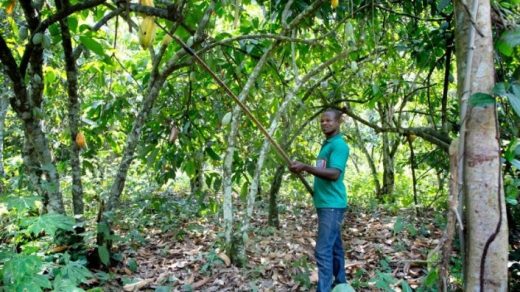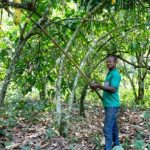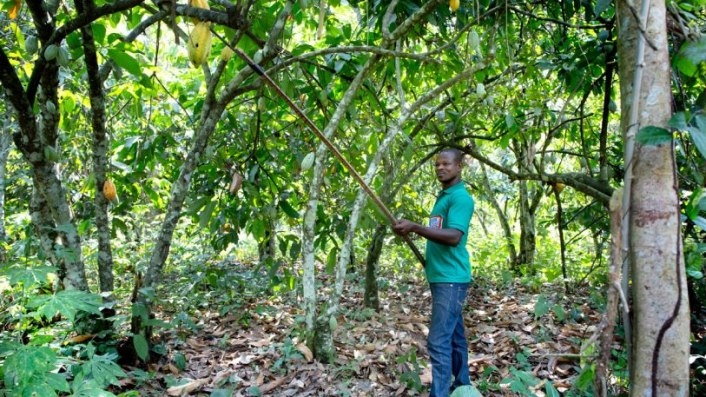This Candy Company Is Making Sure Its Chocolate Is “100% Slave-Free”
The unsweet truth about the chocolate industry is that it relies heavily on child labor. More than 2 million children are forced to work in dangerous conditions on cocoa plantations in West Africa, according to a recent Tulane University report. More than 60% of the world’s cocoa supply comes from that region, farmed by about 2.5 million farmers toiling in countries like Ghana and the Ivory Coast. In some cases, small farmers enlist their own children as free labor to make up the shortfall. In others, children and adults are directly trafficked and enslaved by growers, a fate that by some estimates affects 90,000 people in those two places.
The problem is that while many chocolate makers may say they only want to buy from cocoa farms that use good labor practices, because the companies aren’t buying directly from farmers, there’s a middleman, which leaves the circumstances under which some beans were harvested obscured.
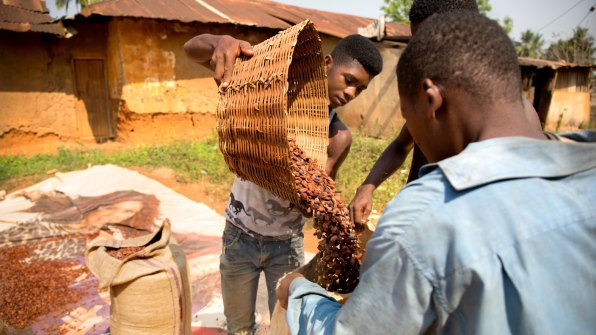
To combat that, many chocolate companies pay cocoa traders extra to ensure their beans as fair trade, an industry term that’s something of a smoke screen: Technically, all it means is that the candy maker pays a little more than average market price to a trader, who in turn diverts the overage back to some of its suppliers that demand a more livable wage. But those traders generally batch yields from many different kinds of farms (the good ones, and bad ones) together. So the beans that end up in those fair-trade advertised bars might really have only been partly from a fair-trade source.
The other tricky part is that paying a little more for beans in the communities that need it isn’t the same thing as investing strategically in how to help those farmers. So it doesn’t necessarily encourage others to join in or fix their own cocoa farms. (Within the U.S. both Fairtrade America, an extension of Fairtrade International, and Fair Trade USA offer formal certification processes with different product seals. Only 3% of the cocoa industry by volume have adopted such social or environmental auditing.)
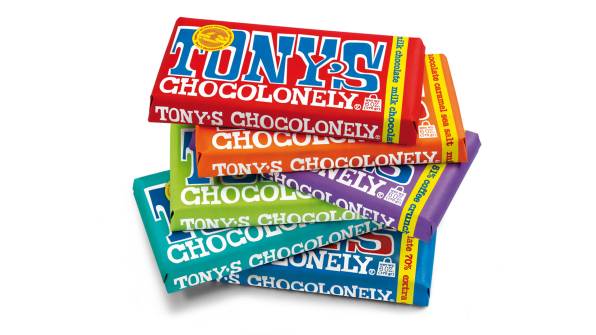
Since hitting U.S. shelves last fall, a new kind of chocolate bar company is trying a different tactic: Making “100% slave-free” its central selling point. Amsterdam-based Tony’s Chocolonely features a wrapper with the brand’s name spelled out in large, cartoonish lettering. Inside, the chunky squares are divided unevenly to represent the inequality within the industry. Large six-ounce bars cost about $5 and are stocked nationally at World Market and REI stores, regionally at Whole Foods within the midwest, southwest, and pacific northwest, and in a growing patchwork of other grocery stores.
To meet that promise, company leader Henk Jan Beltman, who insists on being called “Chief Chocolate Officer,” had to rethink nearly everything about how traditional supply and production works. Rather than contract with international traders, the company deals directly with independent in-country farming cooperatives, which sometimes receive NGO support. All participants not only share practices to grow better crops, but agree to be monitored, ensuring instances of child labor are spotted and addressed.
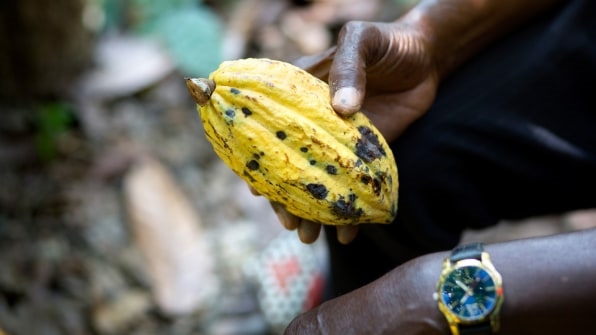
To avoid confusion, Tony’s has partnered with Fairtrade International to ensure their practices meet those standards. But the company pays a higher than average price for their beans and doesn’t charge noticeably more at retail. That means slimmer profits, about 3% of the price per bar.
To thrive, the company will have to grow the concept. The company contracted with roughly 2,800 farmers from five cooperatives in 2016—three in the Ivory Coast, and two in Ghana—to secure over 2,000 metric tons of beans, according to its annual report. Beltman says Tony’s, which is a certified B Corporation, clears north of $50 million in revenue and makes up 20% of the market in Holland.
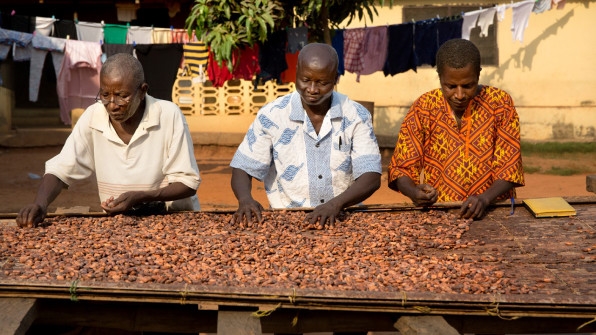
To encourage farmers to invest more in their own efforts, Tony’s also offers five-year contracts for growers, so that the farmers know how much they’re expected to produce, what the future revenue might be, and how to plan ahead. “We want to have the beans from the farmers that we know inside our wrapper,” Beltman says.
On the production side, the co-ops deliver their harvests to one central trader, CocoaSource, which transports them in bulk to one of the industry’s largest chocolate makers, Barry Callebaut, in Belgium. Barry Callebaut processes the chocolate in a dedicated part of the facility to ensure nothing gets mixed up, and then sends it to two dedicated pouring and molding operations—the company’s contracted chocolatiers—to shape and package the product.
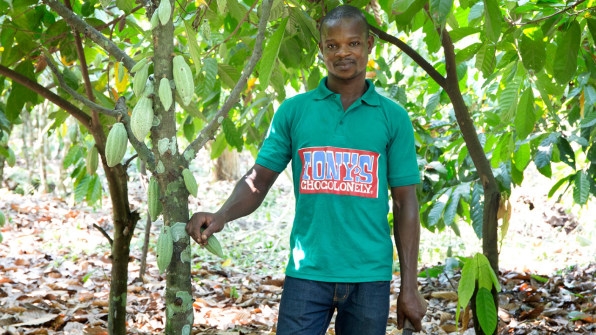
Much like Hershey’s, Tony’s Chocolonely is named after its founder, but with an additional play on words to hopefully encourage you to learn the backstory. It was originally started by a Dutch journalist named Teun “Tony” van de Keuken who, after investigating how slave-based beans were mixed up and melted down with everything else, originally decided to make an absurdist documentary about the injustice in 2004. Van de Keuken bought and ate some off-the-shelf bars and then turned himself in to the police, citing his behavior as helping finance criminal operations. Theatric aside, he wasn’t convicted, so he launched a chocolate company to prove there was another way to ethically manufacture.
“It’s the lonely battle of Tony to change the chocolate industry from the inside out,” say Beltman, a former Heineken marketing executive, who became a majority owner in late 2011. At the time, the brand was more of a niche Amsterdam-based product, in part because the logistics of making ethical chocolate really are quite difficult.
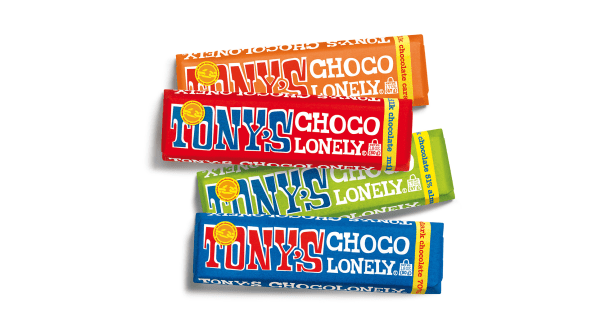
Since taking over, Beltman’s concentration on farming collectives to secure more beans has grown revenue 30-fold. At the same time, Tony’s pays about 25% over the average market or “farm gate” price set by each country’s government, with part of the premium going back to things that co-ops can do to improve yield: planting more plants, sourcing fertilizer, teaching proper care and harvest methods. The rest is cash that goes directly to the farmer. (It’s a bulk business, so producers generally make a couple thousand dollars per ton of beans.)
On the sales side, the company contributes 1% of each purchase to a corporate foundation focused on improving childhood education and community awareness about the harms of slavery in the countries where it works. Tony’s is also a part of the International Cocoa Initiative (ICI), an industry group consisting of most major manufacturers that was founded in 2002 to encourage more child protections. The organization does its own awareness and lobbying, although because suggested production changes could affect bean price, not every member may be eager to adopt it.
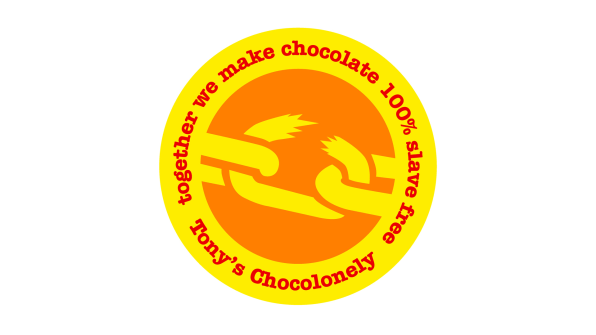
In 2015, Tony’s became the first bar maker to fully adopt ICI’s child labor monitoring and remediation system, which was designed in partnership with Nestle. It employs third-party investigators to visit and independent audit participating farms at least three times a year, both to track violations and spot early warning signs or trouble, like if kids in the area are having trouble reaching school because it’s too rugged of a commute. That’s the sort of problem a local aid group could address before anyone gives up or is pushed toward early manual labor.
Throughout the company’s rise, Beltman has been extremely open about what’s working, and how he plans to grow. “We want to show them that if it works for us and it can work for you,” he says about encouraging others in the chocolate business to be more proactive. “If you do it right, there’s a real dignity in the product that you make.”
By investing in grower co-ops, Amsterdam-based Tony’s Chocolonely is working on creating a better supply chain to power our collective sweet tooth.
The unsweet truth about the chocolate industry is that it relies heavily on child labor. More than 2 million children are forced to work in dangerous conditions on cocoa plantations in West Africa, according to a recent Tulane University report. More than 60% of the world’s cocoa supply comes from that region, farmed by about 2.5 million farmers toiling in countries like Ghana and the Ivory Coast. In some cases, small farmers enlist their own children as free labor to make up the shortfall. In others, children and adults are directly trafficked and enslaved by growers, a fate that by some estimates affects 90,000 people in those two places.
Fast Company , Read Full Story
(48)

